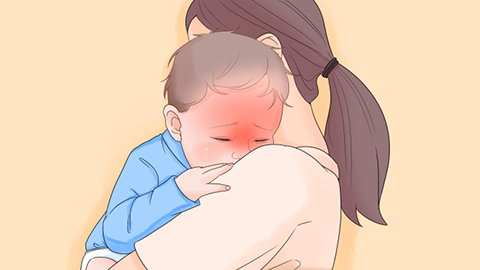What should I do if my ten-month-old baby has a low fever?
Generally speaking, a low-grade fever refers to a mild fever. A ten-month-old baby experiencing a low-grade fever may be related to factors such as excessive warmth, teething discomfort, upper respiratory tract infection, roseola infantum (sixth disease), or pneumonia. It is recommended to treat timely according to the underlying cause, such as general treatment or medication. If the baby continues to have a fever, prompt medical attention is necessary. Detailed analysis is as follows:

1. Excessive Warmth
If parents dress the baby too warmly or in excessive layers, it may prevent the body from dissipating heat, thus causing a low-grade fever. Adjust the baby's clothing according to weather changes and activity level to avoid excessive warmth.
2. Teething Discomfort
When a baby's teeth begin to erupt, symptoms such as swollen and painful gums may occur. This discomfort might even trigger an inflammatory response, leading to a mild fever. In such cases, no special treatment is usually required, but attention should be paid to oral hygiene. It is recommended to clean the baby's mouth with warm water after each meal.
3. Upper Respiratory Tract Infection
Upper respiratory tract infections are often caused by viral or bacterial infections. Pathogens can stimulate the body, causing the baby to experience persistent low-grade fever, which may be accompanied by symptoms such as coughing and runny nose. It is recommended to follow medical advice and use medications such as ribavirin granules, amoxicillin-clavulanate potassium dry suspension, and Xiao Chai Hu granules for treatment.
4. Roseola Infantum (Sixth Disease)
Roseola infantum is a viral infection. Repeated viral stimulation may lead to recurring fever. It is usually accompanied by symptoms such as skin rashes and burning sensations. Under a doctor's guidance, medications such as cold and fever-reducing granules, compound zinc-bromide granules, and calamine lotion may be used for treatment. Additionally, it is important to wipe the skin with warm water regularly to maintain cleanliness and dryness.
5. Pneumonia
Pneumonia is usually associated with improper feeding or infections. When the immune system is compromised and an inflammatory response occurs, body temperature may rise, causing the aforementioned discomfort. It is typically accompanied by symptoms such as coughing and shortness of breath. After diagnosis, under medical guidance, medications such as compound pediatric fever suppositories, nebulized compound ipratropium bromide solution, and ambroxol hydrochloride and clenbuterol oral solution may be used for treatment.
When a baby has a fever, regular observation is necessary, followed by targeted treatment based on accompanying symptoms and underlying causes. At the same time, it is important to promptly adjust the baby's living environment to avoid discomfort caused by excessively high or low temperatures.




